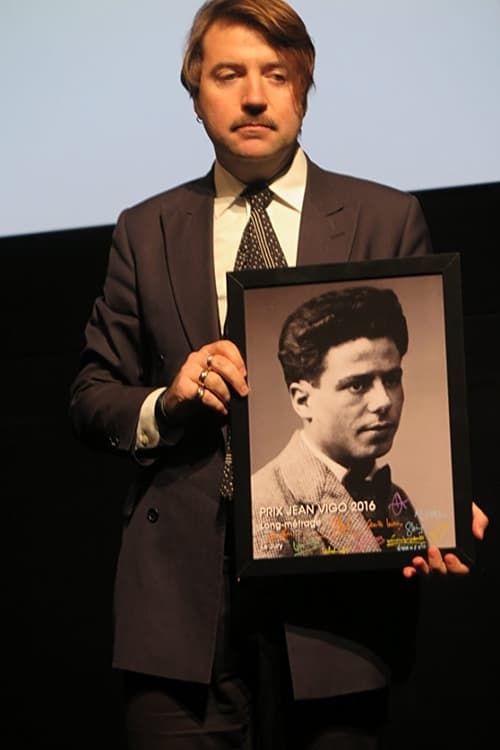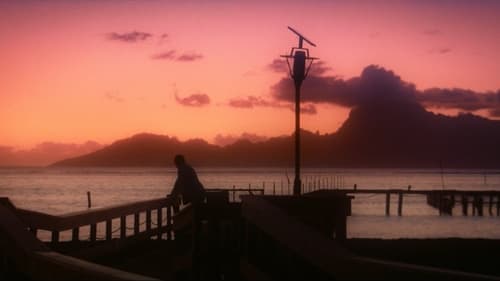
Screenplay
Island of Tahiti. French government official De Roller is a calculating man with impeccable manners, capable of dealing with both high society and the locals he frequents in shady joints.

Editor
Island of Tahiti. French government official De Roller is a calculating man with impeccable manners, capable of dealing with both high society and the locals he frequents in shady joints.

Producer
Island of Tahiti. French government official De Roller is a calculating man with impeccable manners, capable of dealing with both high society and the locals he frequents in shady joints.

Writer
Island of Tahiti. French government official De Roller is a calculating man with impeccable manners, capable of dealing with both high society and the locals he frequents in shady joints.

Director
Island of Tahiti. French government official De Roller is a calculating man with impeccable manners, capable of dealing with both high society and the locals he frequents in shady joints.

Director
Viennale 2022 Trailer

Editor
In “Spaces #3”, 7 internationally acclaimed directors shot, after commissioning by the Thessaloniki International Film Festival, a short film at home, making their own timely comment on the new reality that we live in. The project is inspired by the book “Species of Spaces” by the French novelist, filmmaker, documentalist, and essayist, Georges Perec and the days of quarantine. The idea is to create a film at home, using the environment, the people or the animals in that space. The only outdoor areas that may be used are outdoor living spaces, such as the terrace, the garden, the balcony and the stairwell. “My influences” is Albert Serra’s submission.

Himself
In “Spaces #3”, 7 internationally acclaimed directors shot, after commissioning by the Thessaloniki International Film Festival, a short film at home, making their own timely comment on the new reality that we live in. The project is inspired by the book “Species of Spaces” by the French novelist, filmmaker, documentalist, and essayist, Georges Perec and the days of quarantine. The idea is to create a film at home, using the environment, the people or the animals in that space. The only outdoor areas that may be used are outdoor living spaces, such as the terrace, the garden, the balcony and the stairwell. “My influences” is Albert Serra’s submission.

Director
In “Spaces #3”, 7 internationally acclaimed directors shot, after commissioning by the Thessaloniki International Film Festival, a short film at home, making their own timely comment on the new reality that we live in. The project is inspired by the book “Species of Spaces” by the French novelist, filmmaker, documentalist, and essayist, Georges Perec and the days of quarantine. The idea is to create a film at home, using the environment, the people or the animals in that space. The only outdoor areas that may be used are outdoor living spaces, such as the terrace, the garden, the balcony and the stairwell. “My influences” is Albert Serra’s submission.
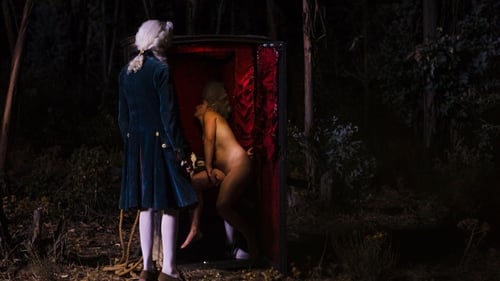
Editor
1774, shortly before the French Revolution, somewhere between Potsdam and Berlin. Madame de Dumeval, the Duke de Tesis and the Duke de Wand, libertines expelled from the puritanical court of Louis XVI, seek the support of the legendary Duc de Walchen, German seducer and freethinker, lonely in a country where hypocrisy and false virtue reign. Their mission is to export libertinage, a philosophy of enlightenment founded on the rejection of moral boundaries and authorities, but moreover to find a safe place to pursue their errant games, where the quest for pleasure no longer obeys laws other than those dictated by unfulfilled desires.

Producer
1774, shortly before the French Revolution, somewhere between Potsdam and Berlin. Madame de Dumeval, the Duke de Tesis and the Duke de Wand, libertines expelled from the puritanical court of Louis XVI, seek the support of the legendary Duc de Walchen, German seducer and freethinker, lonely in a country where hypocrisy and false virtue reign. Their mission is to export libertinage, a philosophy of enlightenment founded on the rejection of moral boundaries and authorities, but moreover to find a safe place to pursue their errant games, where the quest for pleasure no longer obeys laws other than those dictated by unfulfilled desires.

Screenplay
1774, shortly before the French Revolution, somewhere between Potsdam and Berlin. Madame de Dumeval, the Duke de Tesis and the Duke de Wand, libertines expelled from the puritanical court of Louis XVI, seek the support of the legendary Duc de Walchen, German seducer and freethinker, lonely in a country where hypocrisy and false virtue reign. Their mission is to export libertinage, a philosophy of enlightenment founded on the rejection of moral boundaries and authorities, but moreover to find a safe place to pursue their errant games, where the quest for pleasure no longer obeys laws other than those dictated by unfulfilled desires.

Director
1774, shortly before the French Revolution, somewhere between Potsdam and Berlin. Madame de Dumeval, the Duke de Tesis and the Duke de Wand, libertines expelled from the puritanical court of Louis XVI, seek the support of the legendary Duc de Walchen, German seducer and freethinker, lonely in a country where hypocrisy and false virtue reign. Their mission is to export libertinage, a philosophy of enlightenment founded on the rejection of moral boundaries and authorities, but moreover to find a safe place to pursue their errant games, where the quest for pleasure no longer obeys laws other than those dictated by unfulfilled desires.

Editor
In an ambiance loaded with tension, intellectual doubts and creative frustration, Rainer Werner Fassbinder writes and teaches the staging of a theater piece about the 18th century Libertiage at a great theater in Berlín.

Writer
In an ambiance loaded with tension, intellectual doubts and creative frustration, Rainer Werner Fassbinder writes and teaches the staging of a theater piece about the 18th century Libertiage at a great theater in Berlín.

Director
In an ambiance loaded with tension, intellectual doubts and creative frustration, Rainer Werner Fassbinder writes and teaches the staging of a theater piece about the 18th century Libertiage at a great theater in Berlín.

Self
My mother googles the film hero of her youth: Helmut Berger. She is shocked: only an addicted shadow of the former icon seems to be left. She decides to halt the obvious catastrophic decline of the once “most handsome man in the world”. As a consequence, this one-time god of the screen is suddenly sitting on my mother’s sofa in Nordsehl in Lower Saxony. And he stays put - for several months. While he trustingly rolls out his whole life before us, the dividing lines between film team, world star and family intermingle. This is a film about ageing, rising and falling - and about the fact that it is sometimes possible to regain an element of dignity in life.
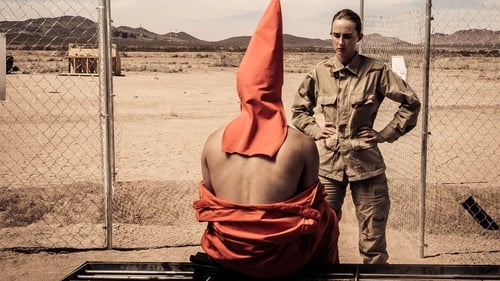
Thanks
A powerful international army assigns a regiment the task of guarding a mysterious man, held in a maximum security prison in the middle of the desert. Soldier Salome, daughter of Commander Antipas, becomes obsessed with him... Eros and Thanatos together reminding us that truth is based on beauty and love.

Editor
Catalan director Albert Serra’s follow-up to his magisterial The Death of Louis XIV is another forensic documentation of the Sun King’s final breaths. Here, however, Versailles is replaced with the glow of the gallery.

Producer
Catalan director Albert Serra’s follow-up to his magisterial The Death of Louis XIV is another forensic documentation of the Sun King’s final breaths. Here, however, Versailles is replaced with the glow of the gallery.

Director
Catalan director Albert Serra’s follow-up to his magisterial The Death of Louis XIV is another forensic documentation of the Sun King’s final breaths. Here, however, Versailles is replaced with the glow of the gallery.
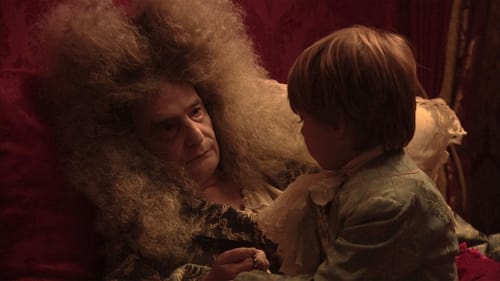
Producer
August 1715. After going for a walk, Louis XIV feels a pain in his leg. The next days, the king keeps fulfilling his duties and obligations, but his sleep is troubled and he has a serious fever. He barely eats and weakens increasingly. This is the start of the slow agony of the greatest king of France, surrounded by his relatives and doctors.

Director
August 1715. After going for a walk, Louis XIV feels a pain in his leg. The next days, the king keeps fulfilling his duties and obligations, but his sleep is troubled and he has a serious fever. He barely eats and weakens increasingly. This is the start of the slow agony of the greatest king of France, surrounded by his relatives and doctors.

Screenplay
August 1715. After going for a walk, Louis XIV feels a pain in his leg. The next days, the king keeps fulfilling his duties and obligations, but his sleep is troubled and he has a serious fever. He barely eats and weakens increasingly. This is the start of the slow agony of the greatest king of France, surrounded by his relatives and doctors.

Editor
August 1715. After going for a walk, Louis XIV feels a pain in his leg. The next days, the king keeps fulfilling his duties and obligations, but his sleep is troubled and he has a serious fever. He barely eats and weakens increasingly. This is the start of the slow agony of the greatest king of France, surrounded by his relatives and doctors.

Screenplay
The film takes place in Ireland – an Ireland where people speak Catalan with a Fassbinder accent – from the 1930 to today, and follows in several parallel directions the sprawling saga of two rival gold mines, the exploitation of artists by Capital, and the simultaneous opening of a brothel where women do not like men. Because he does things his own way, Albert Serra’s most narrative and wordy film was not meant for cinema: produced by the Venice Biennale, it was part of an installation, its chapters shown simultaneously on several screens. Singularity could very well have been called “Velvet Goldmine”, as it sings the meeting of brothels and tunnels, of a golden stud and lustful bodies (both shown as abstractions).

Director
The film takes place in Ireland – an Ireland where people speak Catalan with a Fassbinder accent – from the 1930 to today, and follows in several parallel directions the sprawling saga of two rival gold mines, the exploitation of artists by Capital, and the simultaneous opening of a brothel where women do not like men. Because he does things his own way, Albert Serra’s most narrative and wordy film was not meant for cinema: produced by the Venice Biennale, it was part of an installation, its chapters shown simultaneously on several screens. Singularity could very well have been called “Velvet Goldmine”, as it sings the meeting of brothels and tunnels, of a golden stud and lustful bodies (both shown as abstractions).

Director
An homage from Serra to one of his idols, Rainer Werner Fassbinder, shot in a nightclub full of characters that resemble the ones of Fassbinder films. The title comes from the favourite drink of “Beware of the Holy Whore” characters.

An homage from Serra to one of his idols, Rainer Werner Fassbinder, shot in a nightclub full of characters that resemble the ones of Fassbinder films. The title comes from the favourite drink of “Beware of the Holy Whore” characters.

Production Coordinator
In 1973, towards the end of the Franco regime, the famous catalan writer Mercè Rodoreda bumped into the literary critic Josep Maria Castellet in Geneva where she lived exiled and she invited him to tea at her house. The writer was a most discrete person and maintained everything that concerned her wrapped in secrecy. Indeed she herself had become a secret or perhaps, even a maker of secrets. However that afternoon, strangely, she opened up and shared many intimacies.

Editor
Casanova meets a new servant who will witness his last moments in life, from a castle with its libertine 18th century atmosphere to the poor, shadowy Northern lands. There, his rationalist way of thinking and mundane world will succumb to a violent and romantic force, represented by Count Dracula.

Producer
Casanova meets a new servant who will witness his last moments in life, from a castle with its libertine 18th century atmosphere to the poor, shadowy Northern lands. There, his rationalist way of thinking and mundane world will succumb to a violent and romantic force, represented by Count Dracula.

Screenplay
Casanova meets a new servant who will witness his last moments in life, from a castle with its libertine 18th century atmosphere to the poor, shadowy Northern lands. There, his rationalist way of thinking and mundane world will succumb to a violent and romantic force, represented by Count Dracula.

Director
Casanova meets a new servant who will witness his last moments in life, from a castle with its libertine 18th century atmosphere to the poor, shadowy Northern lands. There, his rationalist way of thinking and mundane world will succumb to a violent and romantic force, represented by Count Dracula.

Director
A 101-hour long reflection on the construction of Europe, its cultural identity and its foundations through the complete adaptation of the texts ‘Conversations with Goethe’ by J. P. Eckermann, ‘Hitler’s Table Talks’ and ‘Fassbinder über Fassbinder: Die ungekürzten Interviews’ (a compilation of interviews with the German filmmaker Rainer Werner Fassbinder, which is used as a counterpoint to the first two books). The texts are read, page by page, by non-professional actors.

Stage Director
A 101-hour long reflection on the construction of Europe, its cultural identity and its foundations through the complete adaptation of the texts ‘Conversations with Goethe’ by J. P. Eckermann, ‘Hitler’s Table Talks’ and ‘Fassbinder über Fassbinder: Die ungekürzten Interviews’ (a compilation of interviews with the German filmmaker Rainer Werner Fassbinder, which is used as a counterpoint to the first two books). The texts are read, page by page, by non-professional actors.

Editor
A 101-hour long reflection on the construction of Europe, its cultural identity and its foundations through the complete adaptation of the texts ‘Conversations with Goethe’ by J. P. Eckermann, ‘Hitler’s Table Talks’ and ‘Fassbinder über Fassbinder: Die ungekürzten Interviews’ (a compilation of interviews with the German filmmaker Rainer Werner Fassbinder, which is used as a counterpoint to the first two books). The texts are read, page by page, by non-professional actors.

Writer
A 101-hour long reflection on the construction of Europe, its cultural identity and its foundations through the complete adaptation of the texts ‘Conversations with Goethe’ by J. P. Eckermann, ‘Hitler’s Table Talks’ and ‘Fassbinder über Fassbinder: Die ungekürzten Interviews’ (a compilation of interviews with the German filmmaker Rainer Werner Fassbinder, which is used as a counterpoint to the first two books). The texts are read, page by page, by non-professional actors.
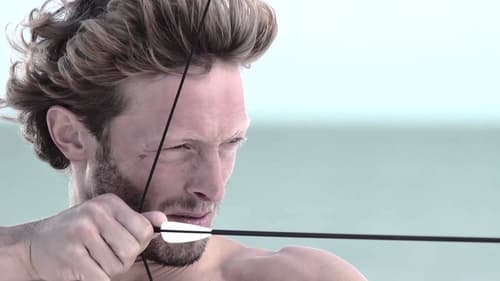
Director
An anthology of one-minute films created by 60 international filmmakers on the theme of the death of cinema. Intended as an ode to 35mm, the film was screened one time only on a purpose-built 20x12 meter public cinema screen in the Port of Tallinn, Estonia, on 22 December 2011. A special projector was constructed for the event which allowed the actual filmstrip to be burnt at the same time as the film was shown.

Writer
Part of the crew of Honor of the Knights travels to La Mancha to see the real settings of Quixote’s life in order to shoot a film.

Producer
Part of the crew of Honor of the Knights travels to La Mancha to see the real settings of Quixote’s life in order to shoot a film.

Director
Part of the crew of Honor of the Knights travels to La Mancha to see the real settings of Quixote’s life in order to shoot a film.

Self
Part of the crew of Honor of the Knights travels to La Mancha to see the real settings of Quixote’s life in order to shoot a film.

Producer
Episodic film, divided into 14 chapters, based on the play De los nombres de Cristo (1586), by Fray Luis de Leon and intended for exhibition "Are You Ready for TV?". Filmed partly in the rooms of MACBA (Museu d'Art Contemporani de Barcelona), is about the difficulty of naming or visually represent abstract concepts.

Writer
Episodic film, divided into 14 chapters, based on the play De los nombres de Cristo (1586), by Fray Luis de Leon and intended for exhibition "Are You Ready for TV?". Filmed partly in the rooms of MACBA (Museu d'Art Contemporani de Barcelona), is about the difficulty of naming or visually represent abstract concepts.

Director
Episodic film, divided into 14 chapters, based on the play De los nombres de Cristo (1586), by Fray Luis de Leon and intended for exhibition "Are You Ready for TV?". Filmed partly in the rooms of MACBA (Museu d'Art Contemporani de Barcelona), is about the difficulty of naming or visually represent abstract concepts.

Episodic film, divided into 14 chapters, based on the play De los nombres de Cristo (1586), by Fray Luis de Leon and intended for exhibition "Are You Ready for TV?". Filmed partly in the rooms of MACBA (Museu d'Art Contemporani de Barcelona), is about the difficulty of naming or visually represent abstract concepts.

Director
A 2010 Catalan language documentary directed by Albert Serra.

Director
Changing colors according to the music.

Self
The exhibition 'The Complete Letters' features epistolary works defined by cinematographic creation. This is an experimental communication format used between pairs of film directors. Although each director is situated in a location geographically distant from that of their partner, they are united by their willingness to share ideas and reflections on all that motivates their work. Within this space of freedom, the directors featured in the exhibition examine their affinities and differences, within an environment of mutual respect and simultaneity of interests and with notable formal variants established in each of the correspondences.

Director
The exhibition 'The Complete Letters' features epistolary works defined by cinematographic creation. This is an experimental communication format used between pairs of film directors. Although each director is situated in a location geographically distant from that of their partner, they are united by their willingness to share ideas and reflections on all that motivates their work. Within this space of freedom, the directors featured in the exhibition examine their affinities and differences, within an environment of mutual respect and simultaneity of interests and with notable formal variants established in each of the correspondences.
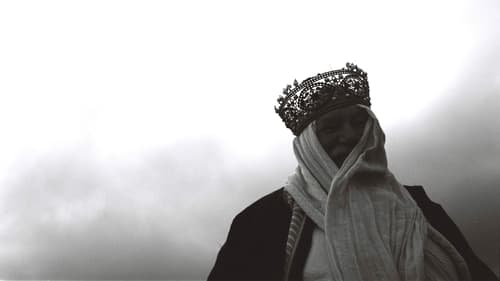
Editor
The Three Wise Kings travel in search of the Messiah, with unexpected obstacles on the way.

Writer
The Three Wise Kings travel in search of the Messiah, with unexpected obstacles on the way.

Director
The Three Wise Kings travel in search of the Messiah, with unexpected obstacles on the way.

self
Waiting for Sancho is an ontological investigation into a place where cinema becomes something more than cinema. Filmed in high-definition colour over five days in the Canary Islands of Fuerteventura and Tenerife, Waiting for Sancho is a kind of experimental “making of” the critically acclaimed El cant dels ocells (Birdsong_/_Le chant des oiseaux). A particular take on the Biblical story of The Three Kings en route to the baby Jesus, El cant dels ocells premiered at the Quinzaine des Realisateurs at Cannes 2008.

Director
SYNOPSIS Albert Serra’s piece for and audiovisual tribute to Chaplin the filmmaker… What is Chaplin’s legacy in contemporary cinema? It is not about producing films like Chaplin did, nor remembering the icon in a naïve fashion, but about finding traces of his cinema in their own individual looks.

self
SYNOPSIS Albert Serra’s piece for and audiovisual tribute to Chaplin the filmmaker… What is Chaplin’s legacy in contemporary cinema? It is not about producing films like Chaplin did, nor remembering the icon in a naïve fashion, but about finding traces of his cinema in their own individual looks.

Director
A short film by Albert Serra, made in conjunction with his third feature film, Birdsong, from a small reference by Dante to the King Arrigo VII (Henry VII) in “Paradise” from “The Divine Comedy.”

Director
The filmmaker Albert Serra and producer Àngel Martin present their last work on the web dedicated to the club Atlètic Club Banyoles and the authentic football.

Writer
A poetic portrait of Lluís Serrat Massanellas, an unprofessional actor and friend of Albert Serra since working with him on Honour of the Knights, and his father, Lluís Serrat Batlle.

Director
A poetic portrait of Lluís Serrat Massanellas, an unprofessional actor and friend of Albert Serra since working with him on Honour of the Knights, and his father, Lluís Serrat Batlle.
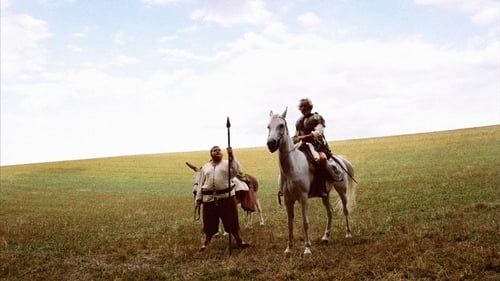
Producer
Trusting in fate, Don Quixote and Sancho pursue their travels in search of adventure day and night. They ride through fields, talking about subjects as varied as spirituality, chivalry and daily life. A growing bond of friendship unites them.

Screenplay
Trusting in fate, Don Quixote and Sancho pursue their travels in search of adventure day and night. They ride through fields, talking about subjects as varied as spirituality, chivalry and daily life. A growing bond of friendship unites them.

Director
Trusting in fate, Don Quixote and Sancho pursue their travels in search of adventure day and night. They ride through fields, talking about subjects as varied as spirituality, chivalry and daily life. A growing bond of friendship unites them.

Director
Lluís Carbó and Lluís Serrat, i nubliables Quixote and Sancho d'Honor de Cavalleria, philosophize, improvise and rehearse, as if at the top of the world, under the eye of Albert Serra.

Director
Short film.

Writer
Loving cult film and idiosyncratic musical portrait of summer festivities in the Catalan village of Crespià, with early performances by the well-known faces from the work of Serra.

Producer
Loving cult film and idiosyncratic musical portrait of summer festivities in the Catalan village of Crespià, with early performances by the well-known faces from the work of Serra.

Director
Loving cult film and idiosyncratic musical portrait of summer festivities in the Catalan village of Crespià, with early performances by the well-known faces from the work of Serra.

Screenplay
New film by Albert Serra. Plot TBA.

Director
New film by Albert Serra. Plot TBA.

Screenplay
A successful black theatre and opera stage director, a very demanding and determined person, is going through a prolonged and devastating spiritual ordeal, of unknown origin, to which she seems to have become accustomed. She lives in a permanent drunkenness, shocking and implausible but paradoxically controlled and with hardly any excesses. She has a growing fascination for the talent and magnetism of one of the actresses, whose career she wants to dominate, as she considers herself responsible and owner of her triumph.

Director
A successful black theatre and opera stage director, a very demanding and determined person, is going through a prolonged and devastating spiritual ordeal, of unknown origin, to which she seems to have become accustomed. She lives in a permanent drunkenness, shocking and implausible but paradoxically controlled and with hardly any excesses. She has a growing fascination for the talent and magnetism of one of the actresses, whose career she wants to dominate, as she considers herself responsible and owner of her triumph.

Screenplay
The first documentary to tackle the aesthetic side of bullfighting in all its complexity and to do so with the expressiveness and plastic and conceptual refinement of director Albert Serra.

Director
The first documentary to tackle the aesthetic side of bullfighting in all its complexity and to do so with the expressiveness and plastic and conceptual refinement of director Albert Serra.

Self
A portrait of the world of contemporary art. A world full of extravagances and colorful characters, but suggestive of the contrast it represents with the normal life of most people. An artificial, theatrical and equivocal world but inhabited by innocence and blind faith in the transforming power of art. The film is a tribute to this world and to these people, with ironic and often provocative borders, but sincere in their admiration for the subversive power of the artists who always question, and in the most unexpected (sometimes involuntary) way, our system of values.

Writer
A portrait of the world of contemporary art. A world full of extravagances and colorful characters, but suggestive of the contrast it represents with the normal life of most people. An artificial, theatrical and equivocal world but inhabited by innocence and blind faith in the transforming power of art. The film is a tribute to this world and to these people, with ironic and often provocative borders, but sincere in their admiration for the subversive power of the artists who always question, and in the most unexpected (sometimes involuntary) way, our system of values.

Director
A portrait of the world of contemporary art. A world full of extravagances and colorful characters, but suggestive of the contrast it represents with the normal life of most people. An artificial, theatrical and equivocal world but inhabited by innocence and blind faith in the transforming power of art. The film is a tribute to this world and to these people, with ironic and often provocative borders, but sincere in their admiration for the subversive power of the artists who always question, and in the most unexpected (sometimes involuntary) way, our system of values.







